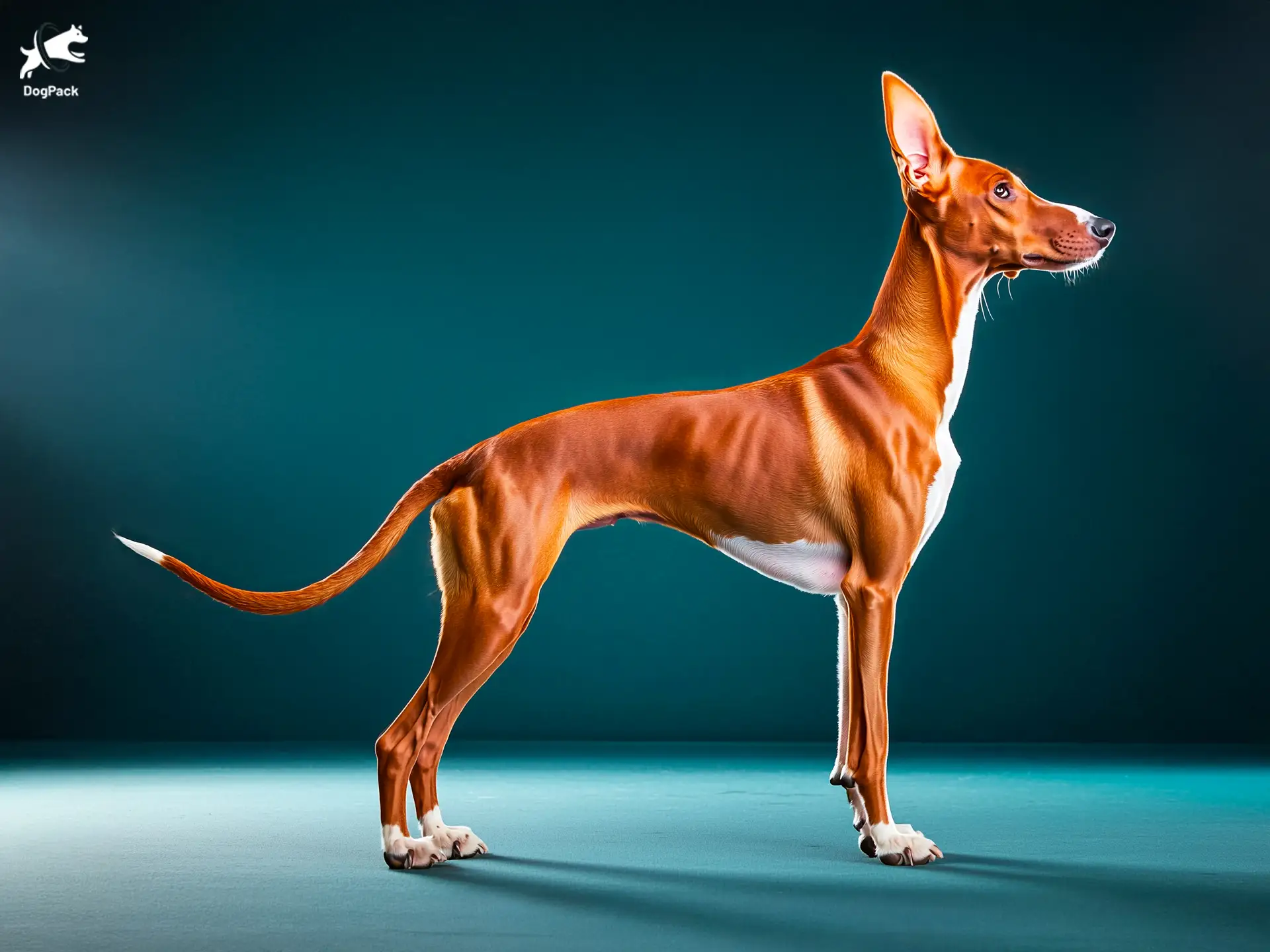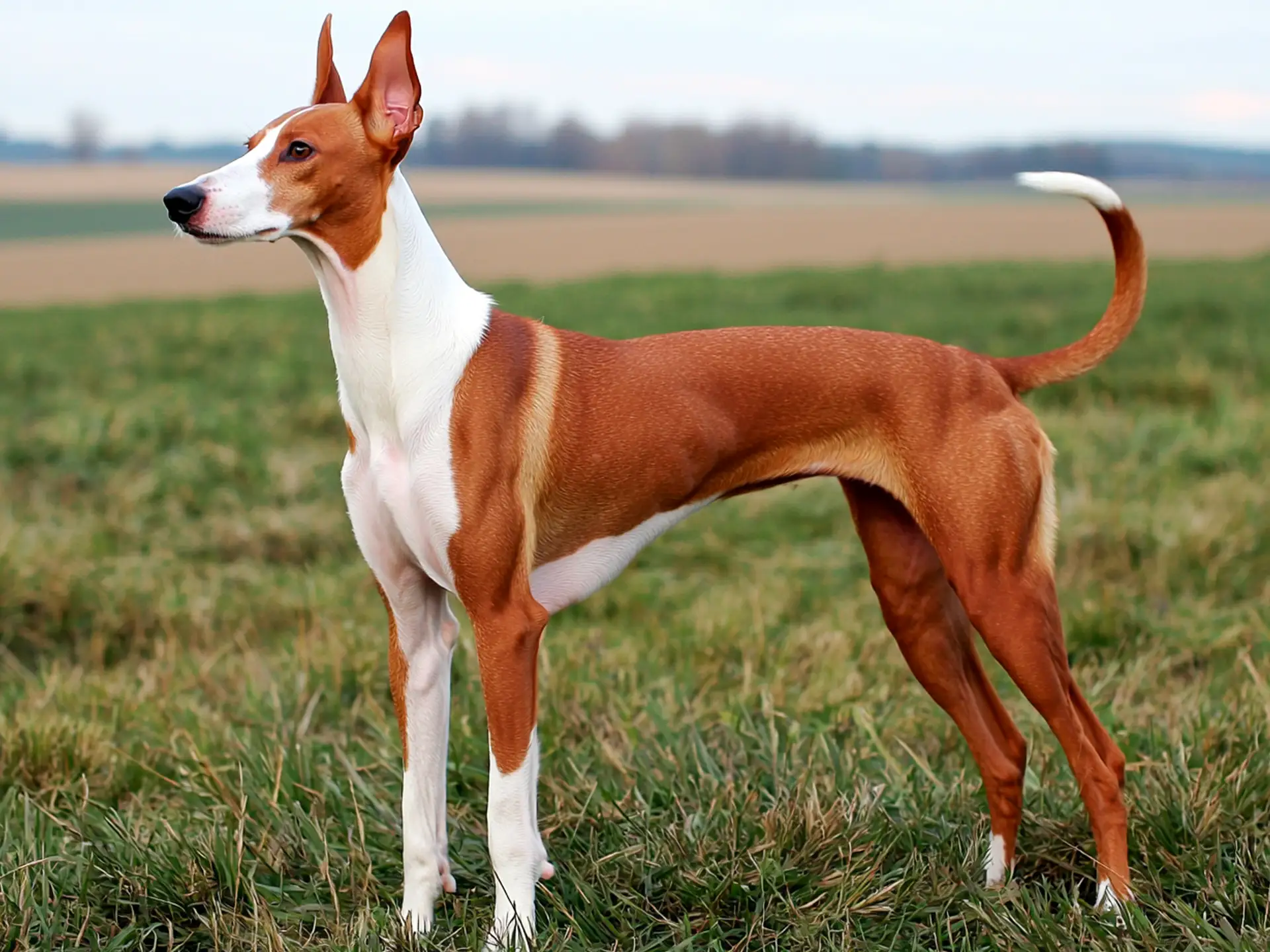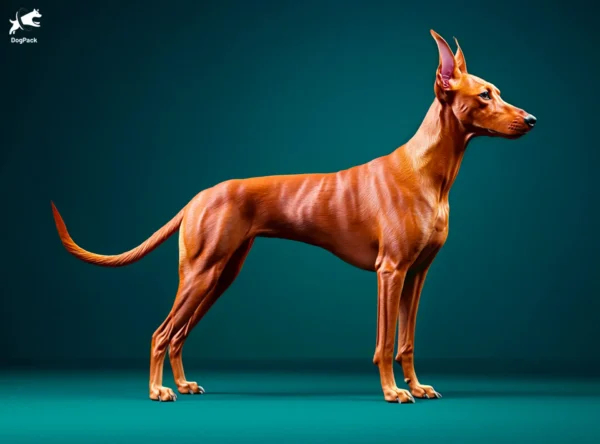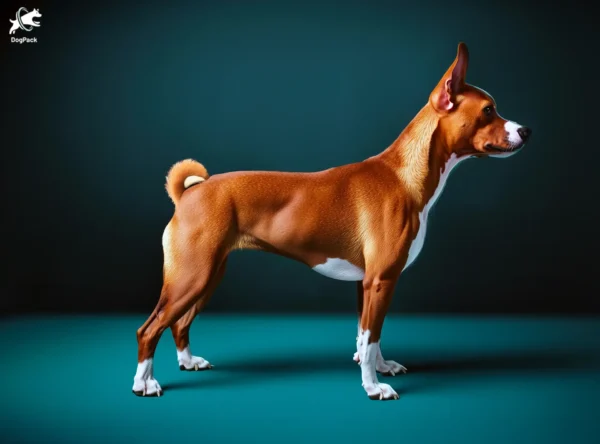Ibizan Hound Dog Breed Info & Overview
The Ibizan Hound, with its tall, slender body and iconic large ears, looks like it stepped straight out of an ancient Egyptian mural. This elegant and athletic breed was originally bred for hunting rabbits on the rocky islands of Ibiza, showcasing both agility and determination. Known for their intelligence and playful nature, Ibizan Hounds are a perfect combination of grace and spirited charm, making them captivating companions.
Characteristics
Pictures
Breed History
Imagine tracing the lineage of a dog back thousands of years—that’s the case with the Ibizan Hound. Originating from the Balearic Islands off the coast of Spain, this breed is believed to be a descendant of ancient Egyptian hunting dogs. Their likenesses have been found in artifacts dating back to 3400 BC, showcasing their long-standing relationship with humans.
The Ibizan Hound was traditionally used by farmers and hunters in Ibiza and neighboring islands to hunt rabbits and other small game. Their keen sight, acute hearing, and incredible agility made them indispensable. What’s fascinating is that they often worked in packs, demonstrating not just individual skill but also remarkable teamwork.
In the 20th century, the breed caught the attention of dog enthusiasts outside Spain. The first Ibizan Hounds were brought to the United States in the 1950s, and they were recognized by the American Kennel Club in 1979. Despite their ancient roots, the Ibizan Hound remains a relatively rare breed today, cherished by those who appreciate their unique heritage and capabilities.
Temperament, Personality
The Ibizan Hound is as charming as it is elegant. Known for their playful and affectionate nature, these dogs form strong bonds with their families. They are intelligent and curious, always eager to explore their surroundings. However, their independent streak means they can sometimes be a bit stubborn, requiring patience during training.
When it comes to children, Ibizan Hounds generally get along well, especially if raised together. They are gentle and can be quite patient, making them suitable companions for older kids who understand how to interact with dogs. Early socialization is key to ensuring they are comfortable around strangers and other animals.
It’s worth noting that the Ibizan Hound has a high prey drive, given their history as hunters. They might see small pets like cats or rabbits as something to chase. Proper introductions and supervision are essential if you have other animals at home. With the right guidance, they can learn to coexist peacefully.
Physical Characteristics
Sleek and athletic, the Ibizan Hound is a sight to behold. They have a lean, muscular build that speaks to their agility and speed. Standing between 22 and 29 inches tall, they carry themselves with a regal posture. One of their most distinctive features is their large, upright ears, which add to their alert and expressive appearance.
Their coat comes in two varieties: smooth and wire-haired. Both types are relatively low-maintenance. The coat color is typically white, red, or a combination of both. Some have a striking, almost deer-like appearance, which is fitting given their gracefulness and agility.
The Ibizan Hound’s eyes are a light amber color, giving them a gentle and intelligent expression. Their nose is often a rosy flesh color, matching the color of their ears and rims of their eyes. This unique coloring sets them apart from many other breeds and adds to their overall elegance.
Health Issues
Overall, the Ibizan Hound is a healthy breed with relatively few genetic health issues. However, like all breeds, they are predisposed to certain conditions. One such condition is deafness, which can be congenital. Regular hearing tests, especially in puppies, can help identify any issues early on.
Another concern is hypothyroidism, a condition where the thyroid gland doesn’t produce enough hormones. Symptoms can include weight gain, lethargy, and skin problems. Regular veterinary check-ups and blood tests can help detect and manage this condition effectively.
The Ibizan Hound can also be sensitive to certain medications and anesthetics due to their lean body mass. It’s important to work with a veterinarian familiar with the breed’s specific needs. Keeping up with routine health screenings and maintaining a healthy lifestyle will contribute to your dog’s overall well-being.
Grooming Needs
If you’re looking for a low-maintenance grooming routine, the Ibizan Hound fits the bill. Their short coat requires minimal brushing—once a week is usually sufficient to keep it looking its best. For the wire-haired variety, occasional stripping may be needed to remove dead hair and maintain coat texture.
Bathing is only necessary when they get particularly dirty or start to develop a doggy odor, which isn’t common. Their coat naturally repels dirt to some extent. Regularly checking and cleaning their ears is important, especially given their size and upright position, to prevent infections.
Don’t forget about dental hygiene! Regular teeth brushing is recommended to prevent tartar buildup and gum disease. Nails should be trimmed regularly if they aren’t worn down naturally through activity. Overall, the Ibizan Hound’s grooming needs are manageable, making them an attractive option for those who prefer a fuss-free routine.
Exercise Requirements
High energy is a hallmark of the Ibizan Hound. These dogs were bred to run and chase, so they need plenty of physical activity to stay happy and healthy. A daily exercise regimen of at least 1–2 hours is recommended, which can include walks, runs, and playtime in a secure area.
Mental stimulation is just as important as physical exercise. Puzzle toys, obedience training, and agility courses can keep their sharp minds engaged. Without adequate stimulation, they may resort to destructive behaviors out of boredom or frustration.
Because of their strong prey drive, it’s crucial to keep them leashed or in a fenced area when outdoors. They can bolt after small animals in a heartbeat. A tall, secure fence is a must, as Ibizan Hounds are known to be excellent jumpers. Regular exercise will not only keep them fit but also strengthen your bond.
Training Tips
Training an Ibizan Hound requires a blend of patience, consistency, and positive reinforcement. They are intelligent and eager to please but can be independent thinkers. Harsh training methods are ineffective and can damage the trust between you and your dog.
Early socialization is crucial. Exposing your Ibizan Hound to a variety of people, places, and situations will help them become well-rounded adults. Puppy classes can be a great way to start, providing both socialization and basic obedience training.
Incorporate variety into training sessions to keep them engaged. Short, fun sessions work best. Use rewards like treats, praise, and play to motivate them. Remember, building a strong relationship based on trust and respect will yield the best results with this breed.
Nutrition, Diet
Feeding an Ibizan Hound requires attention to quality and quantity. Due to their high activity levels, they benefit from a diet rich in protein and healthy fats. Look for high-quality dog food that lists meat as the first ingredient and meets their nutritional needs.
Portion sizes will vary based on age, size, and activity level, but generally, they require 2–3 cups of food per day, divided into two meals. Avoid free-feeding to prevent overeating, which can lead to weight gain and associated health issues.
Some Ibizan Hounds can be prone to food sensitivities, so monitor for any signs of digestive upset or allergies. Consult your veterinarian to tailor a diet plan specific to your dog’s needs. Fresh water should always be available, especially after exercise.
Adoption, Breeders
If you’re considering adding an Ibizan Hound to your family, it’s important to find a reputable breeder or consider adoption through breed-specific rescues. A responsible breeder will provide health clearances and allow you to meet the puppy’s parents.
Organizations like the Ibizan Hound Club of the United States offer resources to find reputable breeders. Adoption is also a wonderful option. Check out rescue groups such as Ibizan Hound Rescue for dogs in need of a loving home.
Be prepared to answer questions about your lifestyle and experience with dogs. Reputable sources will want to ensure their dogs are going to suitable homes. Take the time to research and make an informed decision—you’ll be rewarded with a loyal and loving companion.
Family Pet?
The Ibizan Hound can make a delightful family pet for the right household. They are affectionate with their families and enjoy being part of daily activities. Their playful nature makes them entertaining companions who can bring a lot of joy to your home.
They tend to do well with older children who understand how to interact respectfully with dogs. Their size and energy levels might be overwhelming for very young kids. Supervision is always recommended to ensure positive interactions.
As for other pets, caution is advised. Their high prey drive means they may not coexist peacefully with smaller animals. With proper introductions and training, they can get along with other dogs. Each situation is unique, so assess compatibility carefully.
Right For You?
Is the Ibizan Hound the right fit for your lifestyle? If you’re an active person who enjoys spending time outdoors, this breed could be a great match. They thrive with owners who can provide ample exercise and mental stimulation.
Their independent nature means they do best with experienced dog owners who understand the importance of consistent training and socialization. If you’re looking for a couch potato, this isn’t the breed for you.
Consider your living situation as well. A home with a securely fenced yard is ideal. Apartment living may be challenging unless you’re committed to meeting their exercise needs. Ultimately, the Ibizan Hound can be a rewarding companion for those prepared to meet their requirements.
Conclusion
In summary, the Ibizan Hound is a breed that offers elegance, intelligence, and a touch of ancient history. They are best suited for active owners who appreciate their unique qualities and are willing to invest time in training and exercise. If you’re seeking a companion that’s both a graceful athlete and a loving family member, the Ibizan Hound might just be the perfect match.
FAQs
-
What makes Ibizan Hounds unique among sighthounds?
Ibizan Hounds are known for their agility and ability to leap great heights, even from a standstill. This unique trait comes from their history as rabbit hunters in rugged terrains, making them exceptional athletes among sighthounds.
-
Can Ibizan Hounds live with small pets?
Due to their strong prey drive, Ibizan Hounds may not be ideal for homes with small pets like rabbits or rodents. Early socialization and careful supervision can help, but their hunting instincts are deeply ingrained.
-
How do Ibizan Hounds handle cold weather?
Ibizan Hounds have a thin coat that offers little insulation, making them sensitive to cold weather. They may require a dog jacket or sweater during winter walks to stay warm and comfortable.
-
Are Ibizan Hounds prone to separation anxiety?
Ibizan Hounds are social dogs and form strong bonds with their families. They can experience separation anxiety if left alone for long periods, so they thrive in homes where someone is often present or where they have canine companionship.
-
What kind of training challenges do Ibizan Hounds present?
Ibizan Hounds are intelligent but can be independent thinkers, which sometimes makes training a challenge. Using positive reinforcement and keeping sessions engaging can help them stay focused and eager to learn.
Breed Ratings
The Ibizan Hound is intelligent and learns quickly, but their independent nature can make training a bit challenging.
This breed loves to play and can be quite entertaining with their antics, making them delightful companions.
High energy defines the Ibizan Hound; they need plenty of exercise to stay happy and prevent boredom.
They shed minimally, making grooming easier, but they are not completely shed-free.
With a strong prey drive, they may chase small animals, so caution is needed around pets like cats and rabbits.
Their short coat requires minimal grooming, making them relatively low-maintenance in this regard.
While intelligent, they can be stubborn; positive reinforcement and patience are key in training.
They prefer company and may become anxious if left alone for long periods.
Moderate vocalizers, they may bark to alert but are not typically excessive barkers.
Drooling is minimal with this breed, which is good news for tidy owners.
Generally friendly with other dogs, especially when properly socialized from a young age.
A generally healthy breed with few genetic issues, but regular vet care is important.














